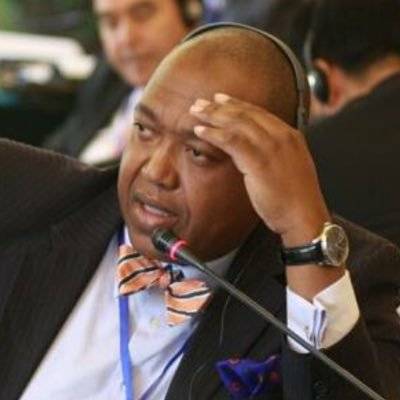The military junta in Sudan has changed its political rhetoric; it has entrenched its position and is not yielding to the demands of the opposition. This is obvious, not least because the United Arab Emirates (UAE), Saudi Arabia and Egypt have declared their support for the Transitional Military Council (TMC).
According to General Abdel Fattah Al-Burhan, the head of the TMC, it will no longer negotiate with protesters and has called for a General Election within nine months. This suggests a dangerous change of attitude since the start of the political stalemate between opposition parties and the military, which created the interim governing council that assumed power after the collapse of the government of former President Omar Al-Bashir.
The situation in Sudan has continued to deteriorate since the ousting of Al-Bashir on 11 April. He was removed from power after 30 years of ruling Sudan with an iron fist, during which scores of people were arrested and killed; many more simply disappeared. Since April, protesters and opposition parties have been calling for the swift handover of power to a civilian government. However, the process has not been plain sailing. The bone of contention appears to be the composition of the government and distribution of members from each side. The TMC has rejected an outright civilian majority in a new administration. The Sudanese Professionals Association, though, represents the protesters and insists that an interim civilian body should be given full executive powers, with the armed forces having representation, albeit with the TMC being dissolved.The process of political normalisation in Sudan was complicated further when security forces loyal to the Council opened fire on protesters on 5 June, killing and injuring dozens in Khartoum. Doctors and activists said that the Rapid Support Group, a paramilitary body led by the deputy president of the TMC, Mohamad Hamdan Dagalo, killed dozens of people and threw their bodies into the Nile to try to hide the number of casualties during a dawn attack on pro-democracy protesters in the Sudanese capital.
Events in Sudan are troubling and appear to mirror 2013’s political events in Egypt. Similar action preceded the Egyptian political process which led to General — now President —Abdel Fattah Al-Sisi taking power. The killing of thousands of protesters on 14 August 2013 in Cairo’s Rabaa Al-Adawiyya Square was followed by an arbitrary political process which ended with the “election” of Al-Sisi as President of the Republic.
READ: Egypt’s Brotherhood calls Sudan’s TMC to cede power
The TMC has used similar rhetoric, almost verbatim, and has acted in a manner akin to that of the Egyptian military in 2013. Moreover, as in Egypt, the government of Sudan has expelled journalists and closed the offices of the most watched international television station in Sudan, Al Jazeera, in what is undoubtedly a premeditated move most likely dictated by Saudi Arabia and the UAE taken in the wake of a visit by the leaders of the Council to both Gulf States. “The Gulf nations on Sunday pledged $3 billion to Sudan after long-time President Omar Al-Bashir was toppled,” media reported. “They said they would deposit $500 million in Sudan’s central bank to ease pressure on the currency. The remainder will go toward food, medicine, and fuel.”
The governments of Saudi Arabia, Egypt and the UAE, have once again decided to be on the wrong side of history and continue to use their wealth to further their own and other destructive policies in the region. What makes the picture even gloomier and more complicated is their influence and dominance of regional bodies such as the Gulf Cooperation Council and the Arab League. Furthermore, the arrest of Mohamed Esmat and Ismail Jelab, two prominent opposition leaders in Sudan, confirms the TMC’s resolve to forge ahead with its political agenda, with or without the opposition. The Prime Minister of Ethiopia, Abiy Ahmed, was visiting Sudan trying to assist both the TMC and opposition groups to reach a settlement when the arrests took place. Esmat and Jalab are both “leading members” of the Freedom and Change alliance, which brings together opposition parties and groups with the organisers of the mass protests.
READ: Sudan military council shuts down Al Jazeera’s Khartoum bureau
Finally, although the African Union has moved to suspend Sudan following the killing of protesters in Khartoum last week, the decision was met with scepticism within the country. The suspension takes the AU out of the picture altogether and will exclude it from daily commentary on Sudan. In essence, therefore, the Union has basically abandoned the people of Sudan, leaving them at the mercy of the TMC and possibly the Arab League.
Moreover, given the apparently warm reception given to current events in Sudan by Russia and Turkey, the opposition is being driven even further into a corner. Moscow and Ankara have been helpful in other political crises in the region by balancing political power. Hence, I conclude that general public support of the Sudanese Professionals Association and opposition notwithstanding, their political fortunes are certainly dwindling.
Ethiopia’s Ahmed seems to be the only hope that they have, at least for now, given that the AU cannot help at this juncture. Abdel Fattah Al-Sisi is the current chair of the AU, remember, and he remains a staunch ally of Saudi Crown Prince Mohammad Bin Salman and his counterpart in the UAE, Mohammed Bin Zayed, both of whom have met and pledged support for Sudan’s Transitional Military Council. Protesters and opposition groups in the country, it seems, have few options left.
The views expressed in this article belong to the author and do not necessarily reflect the editorial policy of Middle East Monitor.

![Sudanese wave national flags on 27 May, 2019 [Ebrahim Hamid/AFP/Getty]](https://i0.wp.com/www.middleeastmonitor.com/wp-content/uploads/2019/05/GettyImages-1146411799-e1560497027958.jpg?fit=920%2C613&ssl=1)

![Protests in Sudan - Cartoon [Sabaaneh/MiddleEastMonitor]](https://i0.wp.com/www.middleeastmonitor.com/wp-content/uploads/2019/01/m11-1-2019.jpg?resize=500%2C310&ssl=1)






